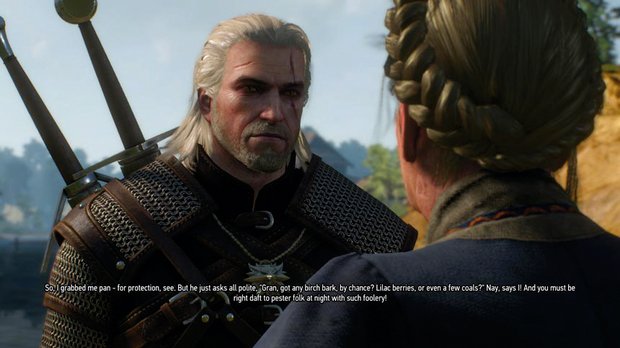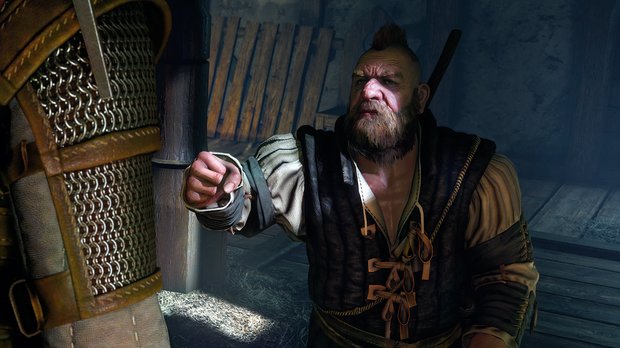Switch on the wonderful The Witcher 3: Wild Hunt and I’m no longer a humble games writer in desperate need of a haircut. I’m Geralt of Rivia, a hardcore monster-hunting heartthrob in desperate need of a haircut. I have muscles in places you don’t even know you have. I’ve slaughtered nine bandits in the time it took you to finish this sentence. I shot a griffin out of the sky as part of the tutorial. Now I’m about to kill a demon who’s been exploiting the local villagers, like the incredible warrior I am. CHAAAAAAARGE!
Or, you can choose a threatening piece of dialogue and see if he backs down. Well, okay, but I didn’t really do any- QUEST COMPLETE! 25 EXPERIENCE GAINED! NO FIGHT NECESSARY. Uh, yay? Wild Hunt’s combat makes me feel like a monster-murdering badass, something I’m arguably not. But its conversations just make me feel like I’m playing a dull turn-based text adventure, one I’ve endured in many games before.

One where it’s usually pretty obvious what line is going to defuse the situation (‘I am so, so sorry; let’s hug it out’) and which will make things worse (‘I haven’t been this happy since your mother’s funeral. I’m glad I killed her’). Villains usually wait patiently for you to speak up, too: even Charles Dance’s Emperor gave me all the time in the world to respond to his questions. You really think Lord Tywin is willing to be that patient with peasants?
Combat’s always getting improved and altered in games, but we need more innovation in how we communicate. Telltale’s use of a countdown bar that rushes you into responding is effective, something The Witcher 3 occasionally tries. But what if that countdown bar was there and we just couldn’t see it? What if we had to guess how much time we had to respond, based on the triviality of the question and the power of who was asking it?
Say a villager asked Geralt what his favourite dance move is. I could get away with a good 20 minutes of mulling that over, or just push the villager down and get on with looting. But if the Emperor demanded I tell him my favourite colour, I'd probably have milliseconds to spit it out before he had me executed. Because you'd never know how long the time limit is, or if there even is a time limit, each encounter would demand your full attention – that’s what speaking with the enemy should feel like. Combat’s rewarding because I feel like I have to use my brains and my brawn (mainly brawn) to take down the most powerful creatures. That’s how I want to feel when I negotiate, too.

Actually, why stop at our dialogue? Games could make us slowly move the analogue stick up and down to nod along to NPCs’ lines and give the impression we’re listening. Press B to gasp, A to frown, X to perform the classic Geralt eye-roll and hold down both triggers to clench his lips, holding in a conversation-killing yawn. On that note, we could even get Kinect involved to read your facial expressions, with Geralt receiving a slap across the face whenever you show the slightest trace of even mild boredom.
I’m humble enough to admit that perhaps not all of my ideas are 100% perfect. But the current standard of game dialogue, selecting lines of text to trigger the next part of the cut-scene, has been tolerated for decades. It’s only going to feel more dated as our games get more advanced. Improving the way we talk in video games is a conversation that we need to have, even if that using-the-triggers-for-yawn-avoidance idea probably means I’ve lost my invitation. Me and my big mouth.
Weekly digests, tales from the communities you love, and more
Click here for more excellent Official Xbox Magazine articles. Or maybe you want to take advantage of some great offers on magazine subscriptions? You can find them here.
Tom was once a staff writer and then Games Editor for Official Xbox Magazine, but now works as the Creative Communications Manager at Mojang. He is also the writer and co-creator of How We Make Minecraft on YouTube. He doesn't think he's been truly happy since he 100% completed Rayman Legends, but the therapy is helping.



